
currently live:
17:00-18:30 What Can Be Offered at the Riga Eastern Partnership Summit?
next:
18:35 Concluding Remarks by Edgars Rinkēvičs, Minister of Foreign Affairs of Latvia
Europe is, as ever, in transition. Its economy remains exposed to the challenges of operating in the post-Lehman Brothers era. A slowdown in emerging markets growth is the last thing a troubled global economy needs. And while the G7 is looking for a new raison d’etre, the G20 is setting priorities to make the global economy more resilient to deal with future shocks. It is possible that Europe may converge politically through joint action on the Transatlantic Trade and Investment Partnership (TTIP), anxiety over a possible education system bubble, and the need to sufficiently underpin the Euro . But does Europe have a long-term vision to influence global tectonic shifts, or will the United States and Asia dominate global leadership?
Speakers:
Angel Gurría, Secretary-General of the OECD
Andris Piebalgs, European Commissioner for Development
Prof. Dr. Karl-Heinz Paqué, Minister of Finance of Saxony-Anhalt (ret.), Chair of International Economics, Otto von Guericke University Magdeburg
Andrius Kubilius, Member of the Seimas 2012-2016, Former Prime Minister of Lithuania
Moderator: Tim King, Editor, European Voice, Belgium
Speakers:
Dr. Gerlinde Niehus, Head of Engagements Section, NATO Public Diplomacy Division (TBC)
Mikheil Darchiashvili, Deputy Defence Minister, Georgia
Did last week’s Wales Summit reaffirm the bond between Europe and North America? As the Afghan government takes more responsibility for its own security, and the NATO operation in the country winds down, the countries in the Euro-Atlantic community are questioning how best to maintain strong capabilities and the seamlessness of defence interoperability. More regular military exercises are part of the answer. What are the other parts? Spending on defence is abysmally low, and even the Ukraine crisis seems to have provided an insufficient jolt to stimulate much-needed increases. While solidarity amongst the Allies appears to have improved and the Latvian Parliament voted to increase its budget incrementally over a five year period, is it enough, and will other European NATO countries follow?
Speakers:
Raimonds Vējonis, Minister of Defence, Latvia
Ine Eriksen Søreide, Minister of Defence, Norway
James Appathurai, Deputy Assistant Secretary General for Political Affairs and Security Policy, NATO
Dr. Ariel Cohen, Visiting Fellow at The Heritage Foundation, the United States
Moderator: Prof. Julian Lindley-French, Senior Fellow, Institute of Statecraft, London
On the threshold of elections in Moldova, this is the right time for the country to foster conditions for sustainable development and good governance. But will the November elections be a turning point? While Russia can offer cheap gas, and tens of thousands of Moldovans may be in favour of joining the Eurasian Customs Union, Moldova seeks to strengthen ties with the European Union. Is Moldova’s direction toward European integration irreversible? How will the Moldovan Communist party try to demonstrate that Europe is a poor choice, and is it a significant force to be reckoned with?
Speakers:
Juris Poikāns, Ambassador-at-Large for Eastern Partnership, Ministry of Foreign Affairs of Latvia
Dr. Martin Sieg, Chief Strategy Adviser to the Prime Minister of the Republic of Moldova
Dr. Stanislav Secrieru, Expert at the Polish Institute of International Affairs (PISM)
Vlad Spânu, President of the Moldova Foundation, the United States
Moderator: Judy Dempsey, Non-Resident, Senior Associate and Editor-in-Chief of Carnegie Europe’s “Strategic Europe”
The lack of interconnectedness is visible in the EU gas transportation and electricity production markets. While Europe has wanted more competition, current policies have resulted in less competition. In effect, a free market system ought to have brought Europe more producers but it has not. In addition, Europe has been looking for ways to reduce and limit carbon dioxide emissions but due to the failure (or success) of the EU emissions trading system (EU ETS) it’s the opposite. Is Europe’s freedom for sale in return for cheaper gas? Is Europe ready to acknowledge the necessity of dealing with its regional challenges in all sectors of energy?
Speakers:
Dr. Vjačeslavs Dombrovskis, Minister of Economy of Latvia
Laurent Ruseckas, Senior Advisor, Eurasian Gas, IHS Energy, the United States
Prof. Dr. Coby van der Linde, Director, Clingendael International Energy Programme, the Netherlands Institute of International Relations
Amb. Murat Salim Esenli, Deputy Undersecretary for European Affairs at the Ministry of Foreign Affairs of Turkey
Moderator: Paweł Konzal, CEO of Krezus S.A., Poland
The annexation of Crimea and the ongoing conflict in the Eastern part of Ukraine has created deep rifts between Russia and the West. The status of “strategic partnership” between the EU and Russia has been questioned by various political leaders while NATO – Russia co-operation has been anything but frozen. In addition, an alternative political and economic structure, the “Eurasian Economic Union” is under creation, under close supervision of the Russian Federation. Are we entering an era of growing political confrontation between Russia and the West? Has the notion of Europe becoming “whole and free” irrelevant today? Is the “Eastern Partnership” to be blamed for the current tensions between Russia and the West?
Speakers:
Andrejs Pildegovičs, State Secretary of the Ministry of Foreign Affairs of Latvia
Dr. Karl-Heinz Kamp, Academic Director of the Federal Academy for Security Policy, Germany
Dr. James Sherr, Associate Fellow, Russia and Eurasia Programme, Chatham House, the United Kingdom
Fyodor Lukyanov, Editor-in-Chief of Russia in Global Affairs, Russia
Moderator: Konstantin von Eggert, Former Editor-in-Chief of Kommersant FM Radio in Moscow
The EU intends to promote the development and dissemination of new information and communication technologies to improve the lives of its citizens. With ever-increasing metadata collection, the right to privacy appears to be eroding. How can the information space in Europe be secured and strategic communication capabilities be boosted? And if Europe is faced by real information wars, where should lines on protection of personal data be drawn?
Speakers:
H. (Dick) W.M. Schoof, National Coordinator for Security and Counterterrorism, Ministry of Security and Justice, the Netherlands
Dr. Gerlinde Niehus, Head of Engagements Section, NATO Public Diplomacy Division
Felix Lindner, Head of Recurity Labs, Germany
Jānis Kārkliņš, Director of NATO Strategic Communications Centre of Excellence (COE), Latvia
Moderator: Craig Kennedy, Former President of the German Marshall Fund of the United States
A member of the United Nations Security Council is using its permanent seat in pursuit of its own interests. Revisionism rears its head and the way it is being done could too easily become a model for other aggressors world-wide. On the positive side, the Baltic Sea region has significantly increased its readiness to ensure the region’s territorial integrity, not only with the U.S. reinforcing its military presence, but with increasing cooperation amongst the Nordic countries and Poland to improve regional capabilities. But the U.S. presence in Europe might not last forever. So how can the Baltic Sea region switch its role from that of a ‘security consumer’ to a ‘security producer’? How can the region remain one step ahead of security threats?
Speakers:
Jānis Sārts, State Secretary of Ministry of Defence of Latvia
Robert Kupiecki, Under-Secretary of State in Ministry of National Defence, Poland
Dr. Ralf Brauksiepe, German Parliamentarian Secretary of State Ministry of Defence
Dr. Simon Serfaty, Professor of US Foreign Policy, Old Dominion University, Zbigniew Brzezinski Chair (Emeritus) in Global Security and Geostrategy, CSIS, the United States
Moderator: Dr. Žaneta Ozoliņa, Vice-Chairman of the Latvian Transatlantic Organisation, Professor of the Department of Political Science, University of Latvia
Speakers:
Dr. Arkady Moshes, Programme Director at the Finland Institute of International Affairs
Paul King, Editor of NATO Review
Populism, euro-scepticism and nationalism are three sleeping demons undermining the European integration project and the very stability of peaceful co-existence of European nations. Nationalistic and illiberal movements are on the rise, and the very idea of European integration is now vehemently opposed by far right and other parties elected to the European and national parliaments. What are the causes for the electoral support to these parties? How can we prevent our democracies being overtaken by nationalistic fever and illiberal trends?
Speakers:
Dr. Vaira Vīķe-Freiberga, Former President of Latvia
Wojciech Przybylski, Editor in Chief of Res Publica Nowa and the Visegrad Insight, Poland
Dr. Erkka Railo, Senior Research Fellow at the Department of Political Science and Contemporary History in the University of Turku, Finland
Amb. Jerzy Pomianowski, Director of European Endowment for Democracy
Moderator: Andris Aukmanis, Former Executive Director of the Soros Foundation – Latvia
Speakers:
Dr. Alan Riley, Professor of Law at City University London, United Kingdom
Mikhail Krutikhin, Partner, RusEnergy, Russia
Peter A. Ragaušs, Senior Vice President and Chief Financial Officer of Baker Hughes Incorporated
Speakers:
Eka Tkeshelashvili, President of Georgian Institute for Strategic Studies, Georgia
Dr. Marek Cichocki, Program Director at Natolin European Centre, Poland
Steven Everts, Advisor to the High Representative, European External Action Service
Speakers:
LTG David Hogg, US Military Representative to the NATO Military Committee, United States
Dr. Artis Pabriks, Member of the European Parliament, Latvia
Justyna Gotkowska, Senior Fellow, Department for Germany and
Northern Europe (TBC)
President Poroshenko and the Government of Ukraine have been simultaneously facing numerous domestic and foreign policy challenges which threaten the very existence of the Ukrainian state in its current borders. The political and economic situation remains fragile due to the complexity of tasks. In the meantime, the European and transatlantic agenda has never been so high on any Ukrainian government’s agenda. Is Ukraine able to deal with these challenges? What is the solution for Ukraine’s troubled east? What kind of European policy should be adopted vis-à-vis Ukraine? Is it possible to pursue good neighbourly relations with Russia and the European integration agenda at one and the same time?
Speakers:
Amb. Borys Tarasyuk, Member of the Ukrainian Parliament
Dr. Oleg Shamshur,Former Ukrainian Ambassador to the United States
Dr. Andrei Illarionov,Senior Fellow at the Cato Institute’s Center for Global Liberty and Prosperity, Russia
Matthew Rojansky, Director, Kennan Institute, the United States
Dr. Joerg Forbrig, Transatlantic Fellow for Central and Eastern Europe at the German Marshall Fund of the United States
Moderator: Dr. Constanze Stelzenmüller, Senior Transatlantic Fellow with the German Marshall Fund of the United States in Berlin
Speakers:
Dr. Nadezhda Arbatova, Head of the Department of European Political Studies at the Institute for World Economy and International Relations (IMEMO), Russian Academy of Sciences, Russia (TBC)
Andrei Illarionov, Senior Fellow, Cato Institute Center for Global Liberty and Prosperity, Russia
Dr. James Sherr, Associate Fellow, Russia and Eurasia Programme, Chatham House, the United Kingdom (TBC)
What is at the heart of the EU’s Eastern Partnership policy? If it is about client country needs, then EU members should start by meeting client interests. But in the current geopolitical stand-off, the Eastern Partnership also requires a two-fold political objective. First, to keep the door to future membership open for countries that seek and sign an Association Agreement. Second, there should be an understanding of the value that may be added to Europe from the relationships and activities with the Eastern Partnership countries. What kinds of modest and bold deliverables can be obtained at the Summit, and what will be the benchmarks for progress?
Speakers:
Linas Linkevičius,Minister of Foreign Affairs of Lithuania
Alex Petriashvili, State Minister of Georgia on European and Euro-Atlantic Integration
Iulian Groza, Deputy Minister of Foreign Affairs and European Integration of Moldova
Dr. Daniela Schwarzer, Senior Director for Research and Director of the Europe Program, German Marshall Fund of the United States
Moderator: Dr.Sylke Tempel, Editor-in-Chief of Internationale Politik
Concluding Remarks by Edgars Rinkēvičs, Minister of Foreign Affairs of Latvia
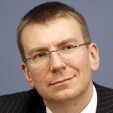
Edgars RINKĒVIČS
Minister of Foreign Affairs of Latvia
Edgars Rinkēvičs is Minister of Foreign Affairs since October 25, 2011. He was Head of the Chancery of the President of Latvia from October 2008 till October 2011. He also served as State Secretary in the Ministry of Defence of the Republic of Latvia from August 1997 till October 2008. He also worked as Chief of the Office for organising the NATO Summit of Heads of State and Government, which took place in Riga, 2006. Mr. Rinkēvičs graduated from University of Latvia and received his Master’s degree in Political Science in 1997. From 1999-2000 he also studied at the U.S. National Defence University, Industrial College of the Armed Forces and has a graduate degree in National Resource Strategy.
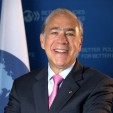
Angel GURRÍA
Secretary-General of the OECD

Angel Gurría is the Secretary-General of the OECD since June 2006. He was re-appointed to a second mandate in September 2010. As OECD Secretary-General, he has reinforced the OECD's role as a ‘hub” for global dialogue and debate on economic policy issues while pursuing internal modernisation and reform. Mr. Gurría is a Mexican national and came to the OECD following a distinguished career in public service in his country, including positions as Minister of Foreign Affairs and Minister of Finance and Public Credit in the 1990s. Mr. Gurría holds a B.A. degree in Economics from UNAM (Mexico) and a M.A. degree in Economics from Leeds University (United Kingdom). He is married and has three children.
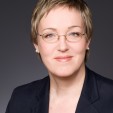
Dr Constanze STELZENMÜLLER
Senior Transatlantic Fellow and Director of Transatlantic Trends German Marshall Fund of the United States

Dr. Constanze Stelzenmüller is a Senior Transatlantic Fellow with the German Marshall Fund in Berlin, and the director of GMF’s survey program, Transatlantic Trends. Previously, she was Director of GMF’s Berlin office (2005-2009), and a reporter and international security editor with the weekly DIE ZEIT in Hamburg (1994-2005). She is an international lawyer by training, and studied in Bonn, Geneva, and Harvard. She speaks and publishes regularly on issues of German, European and transatlantic strategy, as well as on foreign and security policy. She is regularly interviewed and quoted in European and American news media. She chairs the academic advisory council of the German Foundation on Peace Research, and was the chairwoman of Women in International Security Germany (WIIS.de) from 2009 to 2013.

Ine Eriksen SØREIDE
Norwegian Minister of Defence

H. E. Ine Eriksen Søreide is the Norwegian Minister of Defence, a position she has held since October 2013. Prior to serving as Minister of Defence, Eriksen Søreide was a member of the Norwegian Parliament. She represents The Conservative Party. From 2009 to 2013, she served as the chairperson of the Standing Committee on Foreign Affairs and Defence, as well as of the Enlarged Foreign Affairs Committee. At the same time, she was head of the Delegation for Relations with the European Parliament, and head of the European Consultative Committee. Her parliamentary experience also includes: Chair, Standing Committee on Education, Research and Church Affairs (2005-2009); and Member, Standing Committee on Education, Research and Church Affairs (2001-2005). She has served as a member of the Conservative Party Central Executive Committee since 2000. Previous political appointments include; Chair, Young Conservatives in Norway; first vice chair, Young Conservatives in Norway; member, Central Executive Committee of the Young Conservatives in Norway; and first vice chair, Troms Young Conservatives. Minister Eriksen Søreide has a degree in Law from The University of Tromsø (2007).

Prof Dr Coby van der LINDE
Director of the Clingendael International Energy Programme, the Netherlands Institute of International Relations

Coby van der Linde is director of the Clingendael International Energy Programme, Professor of Geopolitics and Energy at the University of Groningen. She is also a member of the wise person group of the International Gas Union since 2004She is also a non-executive director of Wintershall Netherlands and Alliander, and a member of the (international) advisory board of KAPSARC in Saudi Arabia. Her publications can be found on www.clingendaelenergy.com
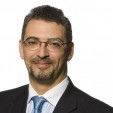
Dr Ariel COHEN
Visiting Fellow at The Heritage Foundation
Ariel Cohen, L.L.B., Ph.D. is an internationally renowned expert on energy policy, communications and public affairs, with a particular focus on Russia/Eurasia, Eastern and Central Europe, and the Middle East. He serves as the Principal of International Market Analysis Ltd., a Washington, D.C.-based advisory firm specializing in energy, natural resources, political risk and public affairs. The firm’s practice includes spans many industries, including oil and gas, telecommunications, transportation, and media. Dr. Cohen is also Director of The Center for Energy, Natural Resources and Geopolitics (CENRG) at the Institute for Analysis of Global Security (IAGS). CENRG focuses on the nexus between geopolitics and security, and natural resources and growth. Dr. Cohen has extensive experience consulting for US Government, Fortune 500 companies and major international law firms. Dr. Cohen is also a Visiting Fellow at the Heritage Foundation in Washington, D.C., where he was a Senior Research Fellow until July 2014. He frequently testifies before U.S. Congressional committees including the Senate Foreign Relations and House International Relations Committees, the Senate and House Judiciary Committees, and the U.S. Helsinki Commission. He conducts White House, Pentagon, and intelligence community briefings. He worked for Radio Liberty-Radio Free Europe Media and Opinion Research, and was for many years a Senior Consultant with Burson Marsteller, one of the leading global public affairs companies, and Emerging Markets Communications, a boutique advisory. Dr. Cohen has published over 700 articles in professional and popular media, 6 books and monographs and 30 book chapters. He regularly appears on CNN, NBC, CBS, FOX, C-SPAN, VOA, BBC-TV, Al Jazeera, and all Russian and Ukrainian national TV networks and writes for US and international media. He is a member of the Council on Foreign Relations and of American Bar Association.
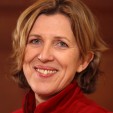
Dr Sylke TEMPEL
Editor-in-Chief, Internationale Politik
Dr. Sylke Tempel ist editor in-chief of „Internationale Politik“, published by the German Council of Foreign Affairs, lecturer at the Stanford Study Center Berlin and visiting professor at Stanford University. She worked as Middle East correspondent for various German language magazines and newspapers. Among her recent publications are: "Israel. Reise durch ein altes, neues Land." (Israel, Journey through an Old New Land“), (2008) And „Freya von Moltke. A Biography.“ (2011)
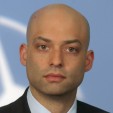
James APPATHURAI
Deputy Assistant Secretary General for Political Affairs and Security Policy and the Secretary General’s Special Representative for the Caucasus and Central Asia, NATO

Mr. Appathurai was appointed Deputy Assistant Secretary General in December 2010. As DASG, he is responsible for NATO’s political relations with countries across the globe, international organisations, enlargement, and arms control. He provides policy advice on political issues affecting the security of the Alliance. He is responsible for implementing and developing NATO’s relations with all its partner countries and organisations, including through Political Agreements, Partnership Cooperation Programmes, and other bilateral and multilateral arrangements. As the Secretary General’s Special Representative, he is responsible for carrying forward the Alliance’s policy in the two strategically important regions of the Caucasus and Central Asia. Mr. Appathurai previously served as NATO’s Spokesperson from 2004 to 2010. Prior to that he served as Deputy Head and Senior Planning Officer in the Policy Planning and Speechwriting Section of NATO’s Political Affairs Division from 1998 to 2004. He served in the Canadian Defence Department from 1994 to 1998.
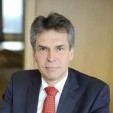
H. (Dick) W.M. SCHOOF
National Coordinator for Security and Counterterrorism, Ministry of Security and Justice, The Netherlands

After studying Physical Planning at the University of Nijmegen, Dick Schoof began his career at the Association of Netherlands Municipalities. He has also been Director-General for Public Safety and Security at the Ministry of the Interior and Kingdom Relations, Director of the Immigration and Naturalisation Service (IND) and Deputy Secretary-General of the Ministry of Justice. From late 2010 to early 2013, Dick Schoof was Director-General for the Police at the Ministry of Security and Justice, where one of his main tasks was setting up the national police force. On 1 March 2013, Mr Schoof became the National Coordinator for Security and Counterterrorism, succeeding Erik Akerboom, who assumed the position of Secretary-General of the Ministry of Defence on 1 December 2012. Mr Schoof was appointed in accordance with the hiring procedure for the Senior Civil Service for high-level managers.

James SHERR
Associate Fellow, Russia and Eurasia Programme, Chatham House

James Sherr is an Associate Fellow of the Russia and Eurasia Programme of Chatham House (having been Head of Programme 2008-11), a Senior Associate Fellow of the Institute of Statecraft and a Visiting Fellow of the Razumkov Centre (Kyiv). Between 1993-2012, he was a member of the Social Studies Faculty of the University of Oxford. From 1995-2008, he was a Fellow of the Conflict Studies Research Centre of the UK Defence Academy. During part of that time (1998-2000), he served as a Specialist Adviser to the House of Commons Defence Committee, and some years previously (1983-85), Director of Studies of the Royal United Services Institute for Defence Studies. Mr Sherr is the author of Hard Diplomacy and Soft Coercion: Russia’s Influence Abroad (Chatham House, 2013). He has produced over 100 publications on Russia, Ukraine and European security. Recent publications include, The Mortgaging of Ukraine’s Independence (Chatham House 2010), ‘The Russia-EU Energy Relationship: Getting it Right’ (International Spectator, June 2010), ‘Hard Power in the Black Sea Region: A Dreaded but Crippled Instrument’ (Journal of Southeast European and Black Sea Studies, September 2011) and Russia and the West: A Reassessment (UK Defence Academy 2008). Since 1995, Mr Sherr has had an intensive advisory role in Ukraine and has worked closely with official bodies and centres of independent expertise in the country. He has also been engaged with wider policy discussions associated with NATO and EU enlargement, the Black Sea region and energy security. He has a long-standing relationship with the Institute of Eastern Studies (OSW) and other centres in Poland, the Institute of Defence Studies (Tallinn) and the Harvard JFK School’s Black Sea and Russia security programmes, and the German Marshall Fund of the USA. He has spoken, inter alia, at the NATO-Russia Council, the NATO Parliamentary Assembly, the Parliamentary Assembly of the Council of Europe and the College of Europe. He was a member of the Valdai Club between 2008 and 2014.
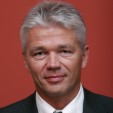
Jānis KĀRKLIŅŠ
Director of NATO Strategic Communications Centre of Excellence

Before assuming duties of the Director of NATO Strategic Communications Centre of Excellence in January 2014, Jānis Kārkliņš served as Assistant Director-General for Communication and Information of UNESCO after being Latvian Ambassador to France, Andorra, Monaco and UNESCO, as well as the Permanent Representative of Latvia to the United Nations in Geneva. Prior to the post in Geneva, he served as the Undersecretary of State in Latvia. Previously, he served as Counsellor in the Latvian Embassies in both France and Finland. He has an Engineering degree from the Riga Technical University in Latvia and attended an executive education programme for Eastern European diplomats at Hoover Institute at Stanford University, USA. He has also served as Chairman of the Governmental Advisory Committee of ICANN, Former President of the Preparatory Committee of the Tunis Phase of the World Summit on the Information Society.

Craig KENNEDY
Former President of the German Marshall Fund of the United States
Craig Kennedy is the lead partner in Creative Engagement, a consultancy that helps governments, corporations and nonprofits reach their key audiences in innovative ways. He recently assumed this position after 18 years as President of the German Marshall Fund of the United States (GMF). GMF is a policy organization that focuses on strengthening cooperation between the United States and Europe on a range of issues. During his tenure at GMF, Kennedy expanded the institution’s program and financial base by adding multiple offices in Europe and developing projects focused on Asia, Latin America, the Middle East and Africa. Kennedy began his career at the Joyce Foundation, a prominent private foundation based in Chicago. He joined Joyce in 1980. After three years as a program officer and three years as vice president, he served as president for six years. From 1992 to 1995, he ran a consulting firm that advised major foundations, nonprofit organizations and governments. Kennedy serves on the boards of several for-profit entities. He is also a director of the US-Russia Foundation.
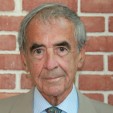
Dr Simon SERFATY
Professor of US Foreign Policy, Old Dominion University, Zbigniew Brzezinski Chair (Emeritus) in Global Security and Geostrategy, CSIS

Simon Serfaty is a senior professor of U.S. foreign policy with the Graduate Programs in International Studies (GPIS) at Old Dominion University (ODU) in Norfolk, Virginia, which he joined in 1993, and where he was named an Eminent Scholar of the university in 2001. Prior to joining ODU, he was a Research Professor in US foreign policy at the School of Advanced International Studies of the Johns Hopkins University (1972-1993). Serfaty also holds the Zbigniew Brzezinski Chair (Emeritus) in Global Security and Geostrategy at the Center for Strategic & International Studies (CSIS), in Washington, DC, where he was Director of the Europe Program (1993-2003) before becoming the first holder of the Chair in 2003. Serfaty has written a large number of books, including, most recently, A World Recast: The American Moment in a Post-Western World (Rowman & Littlefield, December 2012) and Un monde nouveau en manque d’Amérique (Odile Jacob, March 2014). Earlier books include Architects of Delusion: Europe, America, and the Iraq War (2008), and The Vital Partnership: Power and Order (2005), and La tentation impériale (2004), among many others. He has been a guest lecturer in over 40 different countries. He has been a witness for the U.S. Congress and parliamentary bodies in Europe. Serfaty was born in Casablanca, Morocco, and became a US citizen in December 1965. In July 2008, President Sarkozy named Serfaty a Knight of the Legion of Honor, the highest French civilian medal.
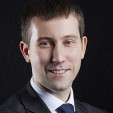
Paweł KONZAL
CEO of Krezus S.A., Poland

Former Adviser to the Minister of Economy, Poland. Former positions with Polish Oil and Gas Company (PGNiG - the largest Polish gas company), including: Adviser to the CEO; Founder and Director, Representative Office to European Union, Brussels. Former Director, Head of Oil & Gas Industry, World Economic Forum. Graduate and postgraduate studies in Economics, Finance, and International Relations and Diplomacy, DePaul University, Chicago, Nowy Sacz Business School, Poland, and University of Turin, Italy.
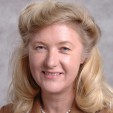
Dr Gerlinde NIEHUS
Head of the Engagements Section, NATO

Dr. Gerlinde Niehus leads the Engagements Section within NATO’s Public Diplomacy Division. As such, she oversees NATO’s Public Diplomacy engagements with audiences in NATO nations and with partners across the globe, be it peer-to-peer or by digital means. Gerlinde Niehus started her professional life as a TV and radio editor for public broadcasters in Germany (WDR and Deutschlandfunk). She then moved to a German think tank, focusing on international relations and a growing range of education and training programmes with partners in Central and Eastern Europe and the New Independent States (NIS). This work brought her to the European Commission in Brussels, where she built up the information and communications programme EU – NIS, and subsequently developed a communications strategy for the European Commission’s Directorate General Information Society. In 1999 she joined NATO, and in 2012 assumed her present position. Gerlinde Niehus holds a Ph.D. in International Relations from Muenster University, Germany.

Prof Dr Julian LINDLEY-FRENCH
Senior Fellow, Institute of Statecraft

Julian Lindley-French is a leading strategic analyst, author and commentator with several books to his name. He is Senior Fellow at the Institute of Statecraft, Director of Europa Analytica and Honorary Fellow of the Strategy and Security Institute at the University of Exeter. His blog, Lindley-French’s Blog Blast (www.lindleyfrench.blogspot.com), has a world-wide readership. The Oxford Handbook of War is regarded as a definitive compendium on the subject. In January 2014 published a new book entitled “Little Britain? Twenty-First Century Strategic Challenges for a Middling European Power”. He is currently working on a book on NATO.

Laurent RUSECKAS
Senior Advisor, Eurasian Gas, IHS Energy
Laurent Ruseckas is an recognized authority on the oil and gas industry in Eurasia and Europe, with more than twenty years of experience advising energy companies, institutional investors, and governments. He focuses on natural gas markets and transportation in Eurasia and Europe, and on political risk, and since 2009 has led many IHS consulting projects in this area. From 2009-2011 Ruseckas worked as Principal Consultant on the IHS team engaged by the European Commission and the World Bank to design the Caspian Development Corporation initiative. Ruseckas first joined CERA (later acquired by IHS) in 1991 and led CERA’s Caspian Energy practice from 1997 to 2003. Subsequently he headed the Europe and Eurasia practice at the political risk consultancy Eurasia Group, and then worked in Azerbaijan as Director of Business Development for Greenoak Holdings, an investment company with assets in the oil transportation sector. A Russian speaker, Ruseckas holds a B.A. with honors in Russian and Soviet Studies from Harvard University (Cambridge, USA), and he passed comprehensive examinations in the Ph.D. program in Political Science at Columbia University (New York, USA). He was a member of the Advisory Board of the Open Society Institute’s Caspian Revenue Watch program. Ruseckas is based in London.
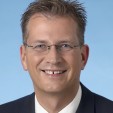
Dr Ralf BRAUKSIEPE
Parliamentary State Secretary, Ministry of Defence of Germany

Dr Ralf Brauksiepe has been the Parliamentary State Secretary at the German Federal Ministry of Defence since 2013. He is also the Federal Chairman of the German Civil Service Federation Working Group in the Christian Democratic Workforce (CDA/dbb-AG) and the Deputy Chairman of the Christian Democratic Party/Christian Social Union (CDU/CSU) parliamentary group of North Rhine-Westphalia. Prior to taking up his present position, Dr Brauksiepe was the Parliamentary State Secretary at the German Federal Ministry of Labour and Social Affairs. He has served as a Member of the Presidium of the European Union of Christian Democratic Workers (EUCDA) since 2005 and has been the Deputy Federal Chairman of the Christian Democratic Workforce (CDA) since 2003. Dr Brauksiepe was elected to the Bundestag in 1998 and was chairman of the CDU/CSU Youth Organisation of North Rhine-Westphalia between 1996 and 2000. Dr Brauksiepe received his Doctorate in economics in 1995, his Master’s, in economics and business administration, in 1990 and worked as aResearch Assistant at the Seminar for Economic and Financial Policy of the Faculty of Economics at Ruhr University Bochum prior to his election to the Bundestag. He is a native of Hattingen in North Rhine-Westphalia and is married with four children.
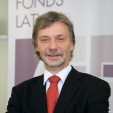
Andris AUKMANIS
Former Executive Director of Soros Foundation – Latvia

Prior to joining the Soros Foundation - Latvia, Andris Aukmanis worked as an auditor for a firm of chartered accountants in Canada and as history teacher at the Lettisches Gymnasium in Münster, Germany. He has been Executive Director of the Soros Foundation – Latvia since 2003. Andris Aukmanis has been with the Foundation since 1995 both as Director of the Transformation of Education Program and as Deputy Director for Development. In the latter capacity he spearheaded the Foundation’s activities in public policy development, as well as its Europe Initiative. Andris is a board member of the Riga Graduate School of Law, the Latvian Judicial Training Centre, and the Latvian Centre for Contemporary Art. He holds a master’s degree in history and a bachelor’s degree in business administration.
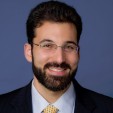
Matthew Rojansky
Director, Kennan Institute
Matthew Rojansky is an expert on U.S. relations with the states of the former Soviet Union, especially Russia, Ukraine, Belarus and Moldova. He has advised governments, intergovernmental organizations, and major private actors on conflict resolution and efforts to enhance shared security throughout the Euro-Atlantic and Eurasian region. From 2010 to 2013, he was Deputy Director of the Russia and Eurasia Program at the Carnegie Endowment for International Peace. There, he founded Carnegie's Ukraine Program, led a multi-year project to support U.S.-Russia health cooperation, and created a track-two task force to promote resolution of the Moldova-Transnistria conflict. From 2007 to 2010, Rojansky served as executive director of the Partnership for a Secure America (PSA). Founded by former congressman Lee Hamilton (D-IN) and former senator Warren Rudman (R-NH) with a group of two dozen former senior leaders from both political parties, PSA seeks to rebuild bipartisan dialogue and productive debate on U.S. national security and foreign policy challenges. Rojansky is an adjunct professor at Johns Hopkins SAIS and American University, and a participant in the Dartmouth Dialogues, a track-two U.S.-Russian conflict resolution initiative begun in 1960. He is frequently interviewed on TV and radio, and his writing has appeared in the International Herald Tribune, the Washington Post, and Foreign Policy.
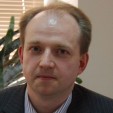
Dr Martin SIEG
Chief Strategy Adviser to the Prime Minister of the Republic of Moldova

Martin Sieg is Strategy Advisor to the Prime Minister of the Republic of Moldova and a Foreign Policy Advisor in the German Bundestag. He has broad experience as a political consultant for different governments and commercial institutions. He has worked as an expert for national and international organisations on EU and NATO enlargement, foreign and security policy, institutional reform and promotion of democracy. Holding doctoral degrees in History and Political Science, Martin has taught European integration and international relations at several universities.
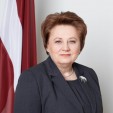
Dr Laimdota STRAUJUMA
Prime Minister of Latvia
Laimdota Straujuma is the first woman to become Prime Minister of Latvia. Her Government was approved by the Saeima on 22 January 2014. Previously, Ms Straujuma was Minister of Agriculture. She has also served as State Secretary and Deputy State Secretary at the Ministry of Agriculture and the Ministry of Environmental Protection and Regional Development. Ms Straujuma holds a PhD in economics.
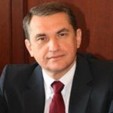
Dr Oleh Shamshur
Former Ukrainian Ambassador to the United States

Ambassador Oleh Shamshur (b. in Kyiv, 1956) graduated from Kyiv Taras Shevchenko University in 1978 specializing in international relations. He obtained his Ph. D. (History) at the same University in 1982. He started his professional career at the Academy of Sciences of Ukraine where he worked at the Institutes of Social and Economic Problems of Foreign Countries and World Economy and International Relations, including 1984-1989 as Director of Programs of ISCPFC. In 1992-1993 he was visiting scholar at the University College London. In 1993 he joined Ukrainian Foreign Service having been posted as First Secretary and Counselor of the Permanent Mission of Ukraine to the UN and other international organizations in Geneva and Minister-Counselor of the Embassy of Ukraine to the Benelux Countries. In 2003-2005 he was the Head of the European Union Department and Deputy Minister of Foreign Affairs of Ukraine. In the latter capacity he was Ukrainian chief negotiator of the EU-Ukraine Action Plan. From January 2006 till May 2006 he served as Ambassador Extraordinary and Plenipotentiary of Ukraine to the USA. He also worked as Deputy Head of the State Committee of Ukraine for Nationalities and Migration (1996-1998). Ambassador Shamshur is the author of over 80 publications on international migration, ethnic relations and foreign policy. Currently he works as consultant and independent expert at private and non-governmental sectors. He is a GMF Fellow and a member of the advisory board of the Black Sea Trust for Regional Cooperation.
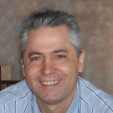
Vlad SPÂNU
President of the Moldova Foundation, the United States
Vlad Spânu is the Moldova Foundation's president based in Washington, DC, focused on building ties between US and the Republic of Moldova, supporting Moldovan civil society, dealing with security threats such as the Transnistrian conflict, presence of Russian troops in Moldova. He has been a senior Moldovan diplomat in 1992-2001, holding various positions, including Director of Ministry of Foreign Affairs’ Department for Regional and International Economic Cooperation. He has been posted twice at the Moldovan embassy in Washington, DC as Counselor, then Minister Counselor, Deputy Chief of Mission. Currently, he holds the position of Adjunct Professor at the College of Business at Bellevue University in Nebraska where he teaches MBA and MPA courses. Among publications on Moldova, his latest book is “The A to Z of Moldova” (2010). He holds a bachelor degree in economics from the State University of Moldova, a master degree in administrative studies from the Romanian National School of Political and Administrative Studies in Bucharest, and a MPA degree from the Harvard’s Kennedy School of Government as Edward S. Mason fellow in Public Policy and Management.

Felix LINDNER
Head of Recurity Labs

Felix 'FX' Lindner is the founder as well as the technical and research lead of Recurity Labs GmbH, a high-end security consulting and research team, specializing in code analysis and design of secure systems and protocols. Well known within the computer security community, he has presented his research for over a decade at conferences worldwide. Felix holds a title as German State-Certified Technical Assistant for Informatics and Information Technology as well as Certified Information Systems Security Professional, is highly specialized in digital attack technologies, but recently changed the direction of his research to defense, since the later seems to be a lot less fun.
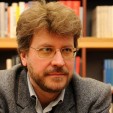
Fyodor LUKYANOV
Editor-in-Chief of Russia in Global Affairs, Russia

Fyodor Lukyanov has been editor of Russia in Global Affairs journal published with participation of Foreign Affairs since it's founding 2002. Under his leadership the journal became one of the most authoritative sources of independent information on foreign policy and international relations in Russia. December 2012 Mr. Lukyanov was elected as chairman of Council on foreign and defense policy (SVOP), the oldest Russian NGO providing expertise in the field of security and foreign affairs. Is member of presidium of Russian international affairs council. His column appears regularly in The Moscow Times, Russian edition if Forbes magazine, Rossiyskaya gazeta, Gazeta.ru and on the TV-channel Rossiya-24. Fyodor Lukyanov has extensive background in Russian media since 1990. Now he is one of the most quoted commentators of Russian foreign policy worldwide. He graduated from Moscow State University 1991, has master’s degree in German language and literature.
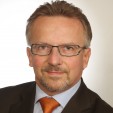
Dr Karl-Heinz KAMP
Academic Director of the Federal Academy for Security Policy

Karl-Heinz Kamp is the Academic Director of the German Federal Academy for Security Policy (BAKS) in Berlin. He studied History and Political Sciences in Bonn and holds a Ph.D. from the University of the German Armed Forces, Hamburg with a dissertation on NATO’s nuclear planning procedures. He started his career in 1986 at the German Council of Foreign Affairs (DGAP) in Bonn. In 1988, he has been Research Fellow with the Center for Science and International Affairs (CSIA), John F. Kennedy School of Government, Harvard University, USA. In September 1988, he joined the Konrad Adenauer Foundation in Bonn, where he became Head of the Foreign- and Security Policy Research Section in 1992 and later the Director of its International Planning Staff. From 2003 to 2007, he was the Security Policy Coordinator of the Foundation in Berlin. From 1997 to 1998, Dr. Kamp was on a temporary assignment with the Planning Staff of the German Ministry of Foreign Affairs. From November 2007 to October 2013 he served as the Research Director of the NATO Defense College (NDC) in Rome to build up NATO's Research Division. In November 2013, he took over the newly created position as Academic Director of the BAKS. He published more than 330 articles on security policy issues in books and journals – including Foreign Policy, Financial Times, Survival, Frankfurter Allgemeine Zeitung, International Herald Tribune, Washington Quarterly, Internationale Politik, Strategic Review, International Defense Review, Die Welt, Christian Science Monitor, Defense News, Neue Zuercher Zeitung, Focus and Wall Street Journal.
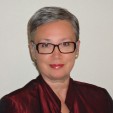
Dr Žaneta OZOLIŅA
Vice-Chairman of the Latvian Transatlantic Organisation, Professor of the Department of Political Science, University of Latvia

Žaneta Ozoliņa has been Professor in the Department of Political Science, University of Latvia, since 2002 and was Head of the Department during 2004-2008. Her research interests focus on European integration, EU and NATO enlargement, international and regional security, as well as security in the Baltic Sea Region. Žaneta Ozoliņa is the author of more than 80 scholarly articles and editor of several books, including such as “Latvia’s View of the Future of the European Union” (2007), “Latvia-Russia-X” (2007), “Rethinking Security” (2010). She was the Chairwoman of the Strategic Analysis Commission under the auspices of the President of Latvia (2004-2008) and a member of the European Research Area Board (European Commission) from 2008-2012. She serves on the Foreign Affairs Council of the Latvian Ministry of Foreign Affairs and the Baltic Development Forum. She regularly delivers lectures at foreign universities. She is one of the authors of the Report “Global Governance of Science” published by the European Commission. Žaneta is also a director of the Center for International Studies
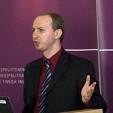
Dr Stanislav SECRIERU
Senior Research Fellow at the Polish Institute of International Relations
Stanislav Secrieru is Senior Research Fellow at the Polish Institute of International Relations. Previously he was a PfP research fellow at the NATO Defense College in Rome, SPES fellow at the Institute for European Politics in Berlin and Black Sea Link fellow at the New Europe College in Bucharest. He has also worked on research projects covering political and security developments in the eastern neighborhood for the Open Society Foundation in Bucharest, the European Council on Foreign Relation in London, Demos Europa in Warsaw, the Finnish Institute of International Affairs, the Heinrich Boell Foundation and Freedom House. He wrote the country report for Moldova in Nations in Transit 2013.
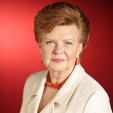
Dr Vaira VĪĶE-FREIBERGA
President of the Club de Madrid and former President of Latvia
Dr. Vīķe-Freiberga is President of the Club de Madrid and former President of Latvia (1999-2007). She was instrumental in achieving membership in the EU and NATO for her country and was Special Envoy on UN reform. She was vice-chair of the Reflection group on the long term future of Europe and chaired the High-level group on freedom and pluralism of media in the EU. Born in Riga, she started her schooling in refugee camps in Germany, then lived in Morocco and Canada, obtaining a Ph.D. at McGill University (1965). After a career as Professor of psychology at the University of Montreal, she returned to her native country in 1998 to head the Latvian Institute. She has published extensively and is much in demand as a speaker.
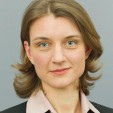
Dr Daniela Schwarzer
Senior Director for Research and Director of the Europe Program, German Marshall Fund of the United States

Daniela Schwarzer is the Director of the Europe Program at the German Marshall Fund of the United States (GMF). She joined GMF's Berlin office in January 2014. Before joining GMF, Dr. Schwarzer headed the European Integration Division at the Stiftung Wissenschaft und Politik (SWP, the German Institute for International and Security Affairs), Europe's largest foreign and security policy research institute, from 2008 to January 2014. She joined the Institute in 2005 as a senior fellow after having served as editorialist and France correspondent of the Financial Times Deutschland since 1999. Since February 2014, Dr. Schwarzer is also a non-resident Senior Research Professor at SAIS, Johns Hopkins University, in Washington, DC and Bologna. In 2012-2013, she was a Fritz Thyssen visiting scholar at Harvard University's Weatherhead Center for International Affairs and a non-resident fellow of the Transatlantic Academy at GMF. She has been an adjunct faculty member of the Hertie School of Governance in Berlin since 2010 and has taught in graduate programs in Europe and China. Dr. Schwarzer is an internationally renowned expert and advisor on Europe and has held advisory positions for the French and Polish governments. She is currently a board member of BNP Paribas, the Jacques Delors Institute - Notre Europe, and the association United Europe.
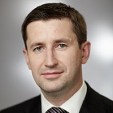
Dr Vjačeslavs DOMBROVSKIS
Minister of Economy of Latvia

Dr Vjačeslavs Dombrovskis assumed the post of Minister of Economics of the Republic of Latvia in January 2014. Mr Dombrovskis joined politics in 2011 when he was elected as a member of the Latvian Parliament. In 2013 he was appointed as Minister of Education and Science of Latvia. He has worked at Riga Graduate School of Law as Visiting Professor and as Associate Professor at Stockholm School of Economics. Mr Dombrovskis holds a PhD in Economics with specialization in public finance and econometrics from Clark University.
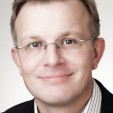
Dr Joerg FORBRIG
Transatlantic Fellow for Central and Eastern Europe at the German Marshall Fund of the United States

Dr. Joerg Forbrig is a transatlantic fellow for Central and Eastern Europe, and director of the Fund for Belarus Democracy. Based in GMF's office in Berlin, he leads the organization's efforts to assist civil society in Belarus, while his analytical and policy work focuses on Europe's East broadly, including the new member countries of the European Union, and the EU's Eastern neighborhood. Prior to joining GMF in 2002, Forbrig worked as a Robert Bosch Foundation fellow at the Center for International Relations in Warsaw, Poland. He has been published widely on democracy, civil society, and Central and Eastern European affairs, including the books Reclaiming Democracy (2007), Prospects for Democracy in Belarus (2006), and Revisiting Youth Political Participation (2005). He is also a regular contributor to major international media, including op-eds in The New York Times, Financial Times, CNN, EU Observer, Neue Züricher Zeitung, and Süddeutsche Zeitung. Forbrig has studied political science, sociology, and Eastern European affairs at universities in Germany, Poland, and Hungary. He holds a Ph.D. in social and political sciences from the European University Institute in Florence and a master’s in political science from Central European University in Budapest.
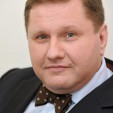
Konstantin VON EGGERT
Political Commentator at the Kommersant FM Radio in Moscow
Konstantin von Eggert is a Russian analyst, consultant and commentator. From 2010 until late 2013 he was Deputy Editor, then Editor-in-Chief for “Kommersant FM” radio in Moscow, Russia’s premiere 24-hour news station. He also runs a private consultancy dealing with communications, reputation management and political risks for major investors in Russia and the CIS. In 2009-2010 he worked as Vice-President for Public and Government Affairs for ExxonMobil Russia Inc., having been in charge of relations with the Russian Government, communications, political and economic analysis and charity projects. In 1998-2009 Mr. von Eggert was Senior Correspondent, and then Editor-in-Chief of the BBC Russian Service Moscow bureau. He also presented “Utro na BBC” (“BBC Morning”), the Russian Service flagship morning news and current affairs program. While with the BBC, Mr. von Eggert spearheaded live coverage of some of the most dramatic events of the last decade, including resignation of Russian President Boris Yeltsin, the Moscow theatre hostage crisis in 2002 and US Presidential elections in 2008. In 1992 -1998 Mr. von Eggert was Diplomatic Correspondent, and later Deputy Foreign Editor of Izvestia daily. His assignments included, among other areas, the Middle East, Iraq, Iran, Tajikistan, Afghanistan and the Balkans. He also commented on Russia-related issues for the "International Herald Tribune", “The Times” of London, “The Financial Times”, "Milliyet", "Helsingin Sanomaat" and regularly appears on the BBC, NPR and other major TV and radio networks. Mr. von Eggert started his career in the media in 1990 as a reporter for the Moscow daily “Kuranty” after discharging from the national army service. He has spent his army years (1987-1990) as translator of Arabic with the Russian military advisors’ mission in Sana’a, Yemen. Konstantin von Eggert is a member of Chatham House - Royal Institute of International Affairs (London); member of the Editorial Board of “Pro et Contra”, the Carnegie Moscow Centre journal; member of the editorial board of the “Security Index” quarterly of the Centre for Political Studies in Russia. He lectured at the Geneva Centre for Security Policy, Royal College of Defense Studies in London, Uppsala and Lund Universities (Sweden). In 2008 Queen Elizabeth II has created Konstantin Honorary Member of the Most Excellent Order of the British Empire. Also in 2008 President Valdas Adamkus awarded him Commander’s Cross of the Order of Merit of Lithuania. Mr. von Eggert is recipient of several Russian journalism prizes, including the 2006 “Verbum Aurum” award of the Russian Media Union. Konstantin von Eggert is an honors graduate of the Moscow University Institute of Asian and African Studies (M.A. in history and Arabic language). He speaks English, French and Arabic.
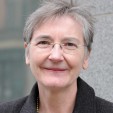
Judy DEMPSEY
Non-Resident, Senior Associate and Editor-in-Chief of Carnegie Europe’s “Strategic Europe"

Judy Dempsey is Non-Resident, Senior Associate and Editor-in-Chief of Carnegie Europe’s “Strategic Europe". She has just published Das Phänomen Merkel. Deutschlands Macht und Möglichkeiten. (Koerber Edition, 2013) and Merkel’s Unfinished Business: Why Germany Needs to Act Strategically. (Carnegie Europe Paper, September 2013). Ms Dempsey was a columnist for The International Herald Tribune (2011-2013) after serving as the IHT’s Germany and East European Correspondent (2004-2011). Prior to that she was the Financial Times’ Diplomatic Correspondent based in Brussels (2001-2004), the FT’s Jerusalem Bureau Chief (1996-2001), the FT’s Berlin Correspondent (1992-1996) and the FT’s East European Correspondent based in Vienna and London (1987-1992). Dempsey graduated from Trinity College, Dublin, where she studied history and political science. She has contributed to several books on Eastern Europe, including Developments in Central and East European Politics (Palgrave Macmillan and Duke University Press, 2007) and The Soviet Union and Eastern Europe: A Handbook (Frederick Muller Ltd, 1985). She has won several journalism awards.
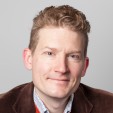
Dr Erkka RAILO
Senior Research fellow at the Department of Political Science and Contemporary History in the University of Turku

Doctor of Social Sciences Erkka Railo works as a Senior Research Fellow in the Centre for Parliamentary Studies located in the Department of Political Science and Contemporary History at the University of Turku, Finland. The main focus of his research has been the changing relationship between politics and media and in particular the influence of the media on the recent rise in popularity of the populist parties. His most recent publication concerning the issue “In the Crest of a wave of Eurocriticism” was a part of a wider international comparative study conducted together with British thin tank Counterpoint. In addition, Railo has studied the history of the Finnish foreign policy, the Finnish election campaigns and the imagoes of Finnish politicians in media, among others.
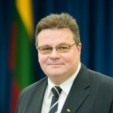
Linas LINKEVIČIUS
Minister of Foreign Affairs of Lithuania
Linas Linkevičius serves as the minister of foreign affairs of the Republic of Lithuania since December 2012. Before that he was ambassador to Belarus. Linkevičius was twice appointed as minister of national defence (1993-96 and 2000-2004) and served twice as Lithuanian ambassador to NATO ( 2005-2011 and 1997-2000). He was first elected to the parliament of Lithuania in 1992.
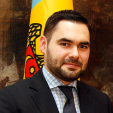
Iulian GROZA
Deputy Minister, Ministry of Foreign Affairs and European Integration of the Republic of Moldova

Mr. Iulian Groza, currently Deputy Minister of Foreign Affairs and European Integration of the Republic of Moldova, he started his diplomatic career in 2004 when he joined the newly established Department for European Integration of the Ministry. He was posted to Brussels at the Moldovan Mission to the EU. Mr. Groza is an expert in the issues of European affairs and is actively involved in promoting Moldova’s efforts on the path of European integration. Iulian Groza is licensed in law and did postgraduate European Studies in the European Research Institute at Birmingham University and NATO Security Studies at SNSPA, Bucharest
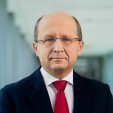
Andrius KUBILIUS
Member of the Seimas 2012-2016
Andrius Kubilius graduated from Vilnius States University, Faculty of Physics, in 1979 and worked as a research fellow there. He joined the Lithuanian Reform Movement Sajūdis in 1988 and was Secretary-in-Charge of the Sajūdis in 1990-1992. Andrius Kubilius has been elected to the Seimas of the Republic of Lithuania since 1992. From 1996 to 1999 he served as First Deputy Speaker of the Seimas and Chairman of the Parliamentary Committee on European Affairs. During 1999-2000 he held the post of Prime Minister in the 10th Government of Lithuania. In 2004-2008 Andrius Kubilius was Leader of the Opposition and later Deputy Speaker of the Seimas. After the successful elections of 2008, he became Prime Minister of Lithuania for the second time (15th Government of Lithuania, until the 2012 general elections). Andrius Kubilius has been Chairman of the Homeland Union – Lithuania Christian Democrats since 2003. In the current legislative term, Andrius Kubilius is Leader of the Opposition of the Seimas, as well as Member of the Committee on Budget and Finance and the Committee on European Affairs. Andrius Kubilius pursues wide-ranging interests: he is interested in political science, history and economics. He served as Chairman of the Policy Committee of the Knowledge Economy Forum from 2001 to 2008, and was Chairman of the Knowledge Society Council under the President of the Republic of Lithuania in 2001-2003. In 2012 Andrius Kubilius was granted the World Leader Cycle Award by the Economic Faculty Association ofRotterdam University.
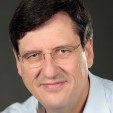
Prof Dr Karl-Heinz PAQUÉ
Minister of Finance of Saxony-Anhalt (ret.), Chair of International Economics, Otto von Guericke University Magdeburg

Karl-Heinz Paqué was born 1956 in Saarbrücken. He studied economics at the Universities of Saarbrücken, Kiel and British Columbia (Vancouver, Canada). After his Ph. D. at the University of Kiel and various other academic positions, he worked as professor, research director and department head at the Kiel Institute for the World Economy from 1991-1996. In 1996, he was appointed to the Chair of International Economics at the Otto-von-Guericke-University of Magdeburg, which he held from 1996-2002 and holds again since 2008. From 2002 to 2006, he was minister of finance of the state of Saxony-Anhalt; from 2006 to 2008 he was chairman of the liberal fraction in the Saxony-Anhalt parliament. He then returned to his chair at Magdeburg University, where he is Dean of the faculty of economics and management since 2010. From 2011-2013 he was a member of the Enquete-Committee “Growth, Prosperity, and Quality of Life” of the German Bundestag. His latest publications are three books published by the Carl Hanser Verlag Munich, Die Bilanz. Eine wirtschaftliche Analyse der Deutschen Einheit (2009), and Wachstum! Die Zukunft des globalen Kapitalismus (2010), which was nominated for the German Economics Book Prize by the German weekly Handelsblatt. His latest book Vollbeschäftigt. Das neue deutsche Jobwunder was published in September 2012. He holds an honorary doctorate from the University of Miskolc, Hungary. Among many academic and political duties, he is chief editor of the Journal Perspektiven der Wirtschaftspolitik of the German Economic Association. Politically, he is a member of the Free Democratic Party. From 2003 to 2007, he was and since December 2013, he is again member of the party’s federal executive Committee (Bundesvorstand). He is also member of the supervisory board of the Friedrich Naumann Foundation.
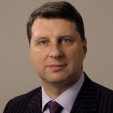
Raimonds VĒJONIS
Minister of Defence of Latvia
Mr. Vejonis is the Minister of Defence of Latvia (since January 2014). Before holding his current position, Mr. Vejonis was the minister of Environment of the Republic of Latvia (2002-2011). His other positions covered various activities at different state agencies. Mr. Vejonis was a member of the strategic development Commission (2012-2014); Chairman of the Public Administration and Local Government Committee’s Subcommittee on Drafting and Implementation of the National Development Plan (2011-2014); Chairman of the Baltic Affairs Subcommittee of the Foreign Affairs Committee; member of the National Security Committee (2011-2014). At the same time, he was a member of the Public Administration and Local Government Committee. Mr. Vejonis also served as a member of the 11th Saeima (2011-2014). Raimonds Vējonis has graduated from the Faculty of Biology of the University of Latvia, he has Master’s Degree in Biology and several scientific publications in the field of environmental engineering. He has enriched his knowledge in Tampere University of Technology and Tallinn University of Technology.
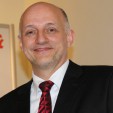
Amb Jerzy POMIANOWSKI
Executive Director of the European Endowment for Democracy, POLAND
After two years as Deputy Foreign Minister of Poland, Jerzy Pomianowski is leading the newly founded European Endowment for Democracy, as its Executive Director since January 2013. Prior to leading the Polish Foreign Service’s democratization agenda, Pomianowski worked for the joint international initiative of the United Nations Development Programme (UNDP) and the Organisation for Economic Co-operation and Development (OECD): Partnership for Democratic Governance. As its Director (2008-2011), he supported countries destabilised by armed conflict or natural disasters. This followed his work as Director General of the Polish Foreign Service (2005-06) and his launch of Poland’s Development Cooperation and Aid (2006-08). Pomianowski began his career as a civil servant in 1990, just after the fall of communism, first in the Ministry of Education, and then in the Ministry of Foreign Affairs. After being in charge of Poland’s relations with Asia, Middle East and Africa, he was Ambassador to Japan from 1997-2002. From 1980-89, Pomianowski was an active member of the democratic opposition in Poland. He was a board member of the Independent Students’ Association and co-founder of the students’ independent publishing house during his Sociology studies at University of Warsaw. Founder of the Warsaw Centre for Japanese Sports, Pomianowski devotes his free time to manage the Polish Aikido Federation as its present president.
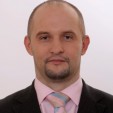
Jānis SĀRTS
State Secretary of the Ministry of Defence of Latvia

Mr. Sārts is the State Secretary of the Ministry of Defence of Latvia since 2008. Before the assignment of State Secretary Jānis Sārts has led the defence reforms to prepare Latvia’s integration into NATO. He was in charge of development and implementation of Latvia’s Annual National Plans (MAP) for membership into NATO. From 2002 until 2007, Jānis Sārts headed the Defence section of Latvia’s Delegation to NATO and EU in Brussels. Upon the request of Georgia in 2005 he was appointed as a Special Advisor to Georgia on defence reforms and NATO integration plans. As the State Secretary since 2008 Jānis Sārts has led the reforms of defence sector under severe financial restrictions, developed new State Defence Concept and encouraged regional defence cooperation within NATO and EU. Jānis Sārts has graduated from the Faculty of History of the University of Latvia in 1994; the NATO Defence College and received numerous state awards for his contribution to defence reforms; Latvia’s membership into NATO and hosting the NATO Summit in Riga.
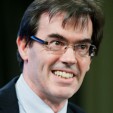
Tim KING
Editor of European Voice, Belgium
Tim King is the editor of European Voice, a leading source of news and analysis on EU policies, laws and institutions. He is responsible for a flagship weekly newspaper, for EuropeanVoice.com, and for various digital briefings. Based in Brussels since 1998, he joined European Voice as deputy editor in 2004 and became its editor in 2009. During his editorship, European Voice has been at the forefront of coverage of the repercussions of the eurozone crisis and of the establishment of the European External Action Service. Before European Voice, he was a correspondent successively for The European, Sunday Business and the financial newswire BridgeNews, and has also reported from Brussels for the Daily Telegraph, The Economist, and the Irish Times. In London, he worked for the Daily Telegraph, where he had stints as environment reporter and education reporter. Before embarking on a career in journalism that has so far lasted 27 years, he studied history at Cambridge and Harvard Universities.
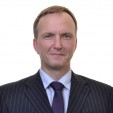
Andrejs PILDEGOVIČS
State Secretary of the Ministry of Foreign Affairs of Latvia

Since May 2013, Mr. Andrejs Pildegovics has been the State Secretary of the Latvian Foreign Ministry. He earned an undergraduate degree in Chinese History and Language Studies at the University of St. Petersburg in 1994. In 1995, he went to the Hoover Institution at Stanford University for diplomatic studies, and then participated in the Foreign Service Program at Oxford University during the 1998-1999 school year. Pildegovičs joined the Latvian Foreign Service in 1994. Pildegovičs then went to work directly for the President of Latvia, Vaira Vīķe-Freiberga, serving as her Foreign Policy Advisor from 2000 to 2006, and then, as Chief of Staff of the President’s Chancery, from 2006 to 2007. In July 2007, Pildegovičs began work as Latvia’s Ambassador to the United States of America in Washington, D.C., and in May 2008 he was accredited to the United Mexican States (Mexico) as well. After this tour of duty abroad, from July 2012 till May 2013, he was Political Director of the Latvian Foreign Ministry in Riga.

Wojciech PRZYBYLSKI
Editor in Chief of Res Publica Nowa and the Visegrad Insight, POLAND
Wojciech Przybylski - editor in chief of Res Publica Nowa journal of ideas on culture and politics and the Visegrad Insight, a journal on Central Europe. President of board at the Res Publica Foundation, a 'think-do' tank based in Warsaw. Graduated from the Warsaw University in hisotry of political thought, previously junior research fellow at the Erasmus Chair at Warsaw University, Politische Akademie in Vienna, CEFRES in Prague. He has published on national and European affairs in Eurozine, Gazeta Wyborcza, Polska The Times, Hospodarske Noviny, New Eastern Europe, RIgas Laiks and other media. Member of the Eastern Partnership Civil Society Forum. Recently founded 'New Europe 100' project by Res Publica in cooperation with Google, Visegrad Fund and Financial Times to identify and bring forward future leaders from the region of various fields empowered by the Digital Age. Previously founded Free Speech Partnership program which networks cultural and intellectual journals from the post-soviet space.
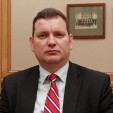
Juris POIKĀNS
Ambassador at Large for Eastern Partnership, Ministry of Foreign Affairs of Latvia

Juris Poikāns is an Ambassador-at-Large for Eastern Partnership at the Ministry of Foreign Affairs of Latvia. He is coordinating Eastern Partnership related policies for the upcoming EU Presidency of Latvia (first half of 2015). Previously Mr Poikāns has served at the diplomatic missions of Latvia in Russia, Belarus, Slovenia and the United States.
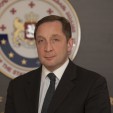
Alex PETRIASHVILI
State Minister of Georgia on European and Euro-Atlantic Integration
Alex Petriashvili is the State Minister of Georgia on European and Euro-Atlantic Integration. His political experience is mostly related to the Political Party “Free Democrats” as he was the Party’s Political Secretary and Political Board Member of the Political Coalition “Georgian Dream” until October 2012. The state Minister started his professional career as a Senior Specialist at the Foreign Relations Division, State Logistic Service, Staff of the Head of State and has further successfully performed as a State Advisor, Foreign Policy Analysis Service, Staff of the President of Georgia; the Head of Bilateral Relations’ Division, Politico-Military Department of the Ministry of Foreign Affairs of Georgia; became a Senior Counselor at the Embassy of Georgia to Austria, Senior Counselor at the Embassy of Georgia to the United States of America, Mexico and Canada and the Ambassador Extraordinary and Plenipotentiary of Georgia to Turkmenistan and Islamic Republic of Afghanistan. After the Parliamentary Elections in Georgia on 1 October 2012 Alex Petriashvili was elected as a Member of Parliament of Georgia. Since October 25 Alex Petriashvili has been successfully heading Georgia’s European and Euro-Atlantic Integration process.
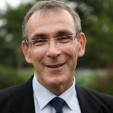
Andris PIEBALGS
EU Commissioner for Development
Andris Piebalgs is the EU Commissioner for Development since 2009. During the first Barroso Commission, starting in November 2004, he was the European Commissioner for Energy. In recognition of his leadership in European energy policy, The Economist magazine honoured him with the title, "Eurocrat of the Year", in 2007. Before joining the Commission, Andris Piebalgs pursued a political career, occupying strategic ministerial portfolios. From 1995 until 2003, he worked in the Latvian diplomatic service. In 1997, he became the Latvian Ambassador to the EU. In this capacity, he helped establish Latvia’s status as an EU candidate country and contributed to the accession negotiations which were successfully capped by EU membership in 2004. Piebalgs is a graduate of the University of Latvia with a degree in physics.
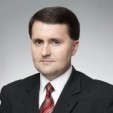
Dr hab. Robert KUPIECKI
Undersecretary of State for Defence Policy, Poland
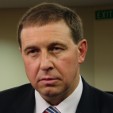
Dr Andrei ILLARIONOV
Senior Fellow at the Cato Institute’s Center for Global Liberty and Prosperity, Russia

Dr. Andrei Illarionov is a Senior Fellow at the Cato Institute's Center for Global Liberty and Prosperity in Washington, USA, andthe President of the Institute of Economic Analysis, an independenteconomic think tank in Moscow, Russia. From 2000 till 2005, he was an Economic Adviser to the President of the Russian Federation.
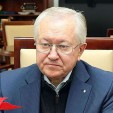
Borys TARASYUK
Member of the Ukrainian Parliament

Borys Tarasyuk is a Member of the Ukrainian Parliament and twice Minister of Foreign Affairs of Ukraine (1998 – 2000, 2005 -2007). During mass protests and tragic events on Independence Square in Kyiv, also known as Maidan (November 2013 - February 2014), Borys Tarasyuk was a member of the National Resistance Committee and Maidan Union Council. Since June 2013, Mr Tarasyuk has been Deputy Head of All-Ukraine Union “Batkivschyna”party. In May of 2011, he was elected Co-president of the EURONEST Parliamentary Assembly. Mr Tarasyuk served in the Ukrainian Mission to the UN (1981-1986); he was Ambassador to the Benelux countries, and to NATO and the WEU (1995-1998). He was one of the key figures in negotiations over the fate of Ukraine’s nuclear arsenal (the world’s third largest), the Black Sea Fleet and conventional armaments. Borys Tarasyuk is the Founder and Director of the Institute for Euro-Atlantic Cooperation, an independent think-tank. He is a member of the Board of Trustees at the International Renaissance Foundation (Soros Foundation in Ukraine) and at Mohyla Academy of the National University of Kyiv.

Amb Murat Salim ESENLI
Deputy Undersecretary for European Affairs at the Ministry of Foreign Affairs of the Republic of Turkey

Since December 2013, Murat Salim Esenli has been serving as Deputy Undersecretary for European Affairs at the Ministry of Foreign Affairs of the Republic of Turkey. In his previous assingments, he served at the Turkish Embassy in Mexico, at the Turkish Delegation to the UN in Geneva, as well as at the Turkish Permanent Representation to the UN in New York. From 2005-2007, he was Minister Plenipotentiary and Deputy Director General for the Americas. From 2007 to March 2009, he was Special Advisor to Ali Babacan, the former Turkish Foreign Minister, and from 2009 – 2013, he served his country as the Ambassador to the People’s Republic of China. Ambassador Esenli received his Master of Arts Degree on International Relations, International Law and the US Government in 1999 from Saint John’s University in New York as a Pope Paul VI scholar.

